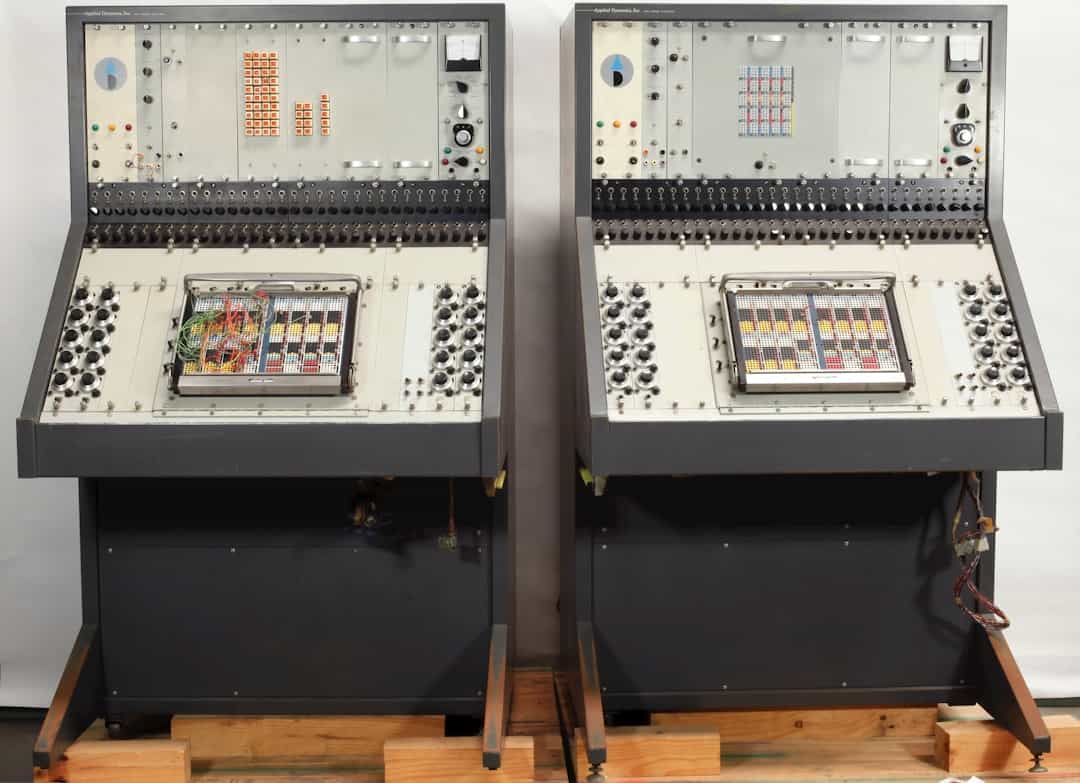Quantum computing represents a paradigm shift in the realm of computation, leveraging the principles of quantum mechanics to process information in fundamentally different ways than classical computers. At the heart of quantum computing are quantum bits, or qubits, which can exist in multiple states simultaneously due to the phenomenon known as superposition. This allows quantum computers to perform complex calculations at speeds unattainable by traditional binary systems.
The potential applications of quantum computing span various fields, including cryptography, materials science, and artificial intelligence, but one of the most promising areas is space navigation. As humanity continues to explore the cosmos, the need for advanced navigation systems becomes increasingly critical. Space missions require precise calculations for trajectory planning, orbital maneuvers, and real-time adjustments to ensure spacecraft reach their destinations safely and efficiently.
Traditional navigation systems often struggle with the vast amounts of data and complex variables involved in space travel. Quantum computing offers a solution by providing the computational power necessary to analyze and process this data more effectively, potentially revolutionizing how we navigate through space.
Key Takeaways
- Quantum computing utilizes quantum mechanics to process and store information, allowing for exponentially faster computation than classical computers.
- Challenges in space navigation include complex calculations for trajectory planning, communication delays, and the need for real-time decision making.
- Quantum computing can address space navigation challenges by enabling faster and more efficient calculations, improving communication and data processing capabilities.
- Quantum computing algorithms such as quantum search and quantum optimization can be applied to space navigation for route planning and resource optimization.
- Advantages of quantum computing in space navigation include improved accuracy, faster data analysis, and the potential for real-time decision making in complex space environments.
- Current applications of quantum computing in space navigation include research and development for satellite communication and navigation systems.
- The future potential of quantum computing in space navigation includes enhanced autonomous spacecraft navigation and improved space exploration missions.
- In conclusion, quantum computing has the potential to significantly impact space navigation by addressing current challenges and enabling new capabilities for space exploration.
Challenges in Space Navigation
Overcoming Distance and Time Delays
One of the primary difficulties is the vast distances involved; for instance, a mission to Mars can take several months, during which time conditions can change dramatically. This necessitates a navigation system that can adapt to new information and make real-time adjustments.
Gravitational Influences and Limited Communication
Additionally, spacecraft must contend with gravitational influences from celestial bodies, which can alter their trajectories unexpectedly. The complexity of these gravitational interactions requires sophisticated modeling and prediction capabilities. Another significant challenge is the limited communication bandwidth available for transmitting data between spacecraft and ground control.
Harsh Environmental Conditions
The vast distances in space mean that signals can take minutes or even hours to travel back and forth, leading to delays in receiving critical navigational updates. This latency can hinder decision-making processes during crucial phases of a mission. Furthermore, the harsh conditions of space—such as radiation exposure and extreme temperatures—can affect the performance of onboard navigation systems, making them less reliable over extended periods.
How Quantum Computing Can Address Space Navigation Challenges

Quantum computing has the potential to address many of the challenges faced in space navigation by providing enhanced computational capabilities that can process vast amounts of data quickly and accurately. One of the key advantages of quantum computing is its ability to perform complex simulations that take into account numerous variables simultaneously. For instance, when planning a trajectory for a spacecraft, quantum algorithms can analyze multiple gravitational influences and environmental factors in real-time, allowing for more accurate predictions and adjustments.
Moreover, quantum computing can improve optimization processes essential for navigation. Traditional algorithms often struggle with optimization problems due to their complexity and the sheer number of variables involved. Quantum algorithms, such as the Quantum Approximate Optimization Algorithm (QAOA), can explore multiple solutions concurrently, identifying optimal paths or maneuvers more efficiently than classical counterparts.
This capability is particularly valuable in scenarios where quick decision-making is crucial, such as during a spacecraft’s approach to a planet or moon.
Quantum Computing Algorithms for Space Navigation
Several quantum algorithms hold promise for enhancing space navigation systems. One notable example is Grover’s algorithm, which provides a quadratic speedup for unstructured search problems. In the context of space navigation, this could be applied to optimize route planning by quickly identifying the most efficient paths among numerous potential trajectories.
By reducing the time required to evaluate possible routes, Grover’s algorithm could enable real-time adjustments based on changing conditions or new data received from sensors. Another significant algorithm is the Variational Quantum Eigensolver (VQE), which is particularly useful for solving complex optimization problems that arise in trajectory planning and resource allocation for spacecraft. VQE can be employed to model the interactions between a spacecraft and various gravitational forces, allowing for more accurate predictions of its trajectory over time.
This capability is essential for long-duration missions where small deviations can lead to significant errors in navigation.
Advantages of Quantum Computing in Space Navigation
The advantages of quantum computing in space navigation extend beyond mere speed; they also encompass improved accuracy and reliability. Quantum systems can process information with a level of precision that classical systems struggle to achieve, particularly when dealing with complex datasets that involve numerous variables and uncertainties. This increased accuracy can lead to better decision-making during critical phases of a mission, ultimately enhancing mission success rates.
Additionally, quantum computing’s ability to handle large datasets efficiently means that it can integrate information from various sources—such as satellite data, onboard sensors, and ground control inputs—into a cohesive navigational framework. This holistic approach allows for more informed decision-making and reduces the likelihood of errors caused by fragmented data processing. As space missions become more ambitious and involve multiple spacecraft operating in concert, the need for such integrated systems will only grow.
Current Applications of Quantum Computing in Space Navigation

Governmental Agencies Leading the Way
While quantum computing is still in its early stages, several organizations are exploring its applications in space navigation. NASA has been at the forefront of this exploration, conducting research into how quantum algorithms can enhance mission planning and execution. For example, NASA’s Quantum Artificial Intelligence Laboratory is investigating how quantum computing can improve optimization problems related to spacecraft trajectories and resource management.
Private Companies Join the Effort
In addition to NASA, private companies like IBM and Google are also contributing to this field by developing quantum computing platforms that can be utilized for space navigation applications. IBM’s Qiskit framework allows researchers to experiment with quantum algorithms tailored for specific problems in aerospace engineering.
Towards Practical Applications
These collaborative efforts between governmental agencies and private enterprises are paving the way for practical applications of quantum computing in real-world space missions.
Future Potential of Quantum Computing in Space Navigation
The future potential of quantum computing in space navigation is vast and largely untapped. As quantum technology continues to advance, we can expect significant improvements in computational power and algorithm efficiency.
Moreover, as quantum sensors become more refined, they could be integrated into navigation systems to provide real-time data on gravitational fields and other environmental factors affecting spacecraft trajectories. These sensors could leverage quantum entanglement to achieve unprecedented levels of sensitivity and accuracy, further enhancing navigational capabilities. The combination of advanced quantum algorithms with cutting-edge sensor technology could revolutionize how we navigate through space.
The Impact of Quantum Computing on Space Navigation
The impact of quantum computing on space navigation is poised to be transformative as we continue to push the boundaries of exploration beyond our planet. By addressing existing challenges such as complex trajectory planning, real-time adjustments, and data integration, quantum computing offers a pathway toward more efficient and reliable navigation systems. As research progresses and practical applications emerge, we may witness a new era in space exploration characterized by enhanced precision and adaptability in navigating the cosmos.
The integration of quantum computing into space navigation not only promises improved mission outcomes but also opens up new possibilities for ambitious projects such as crewed missions to Mars or beyond. As we stand on the brink of this technological revolution, it is clear that quantum computing will play a crucial role in shaping the future of how we explore and understand our universe.
This topic reminds me of another interesting read on how one founder realized the potential of sustainable energy

